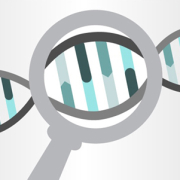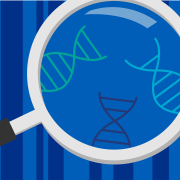Breast Cancer Awareness Month
Survival rates for breast cancer are better than ever, but what can a focus on genomics bring to the table?
October is Breast Cancer Awareness Month. Cancer Research UK has released the results of new analyses estimating that over 130,000 deaths from the disease have been avoided in the past 30 years in the UK. The fatality rate has fallen by 44% since peaking in 1989. But genomic approaches offer the possibility of improving these figures further, and may also bring benefits beyond breast cancer.
The promise of genomics
A new study published in JAMA Oncology suggests that multigene testing for people diagnosed with breast cancer could save thousands of lives.
The study estimated that a one-year screening programme testing for variants in three genes – BRCA1, BRCA2 and PALB2 – could prevent 2,101 cases of breast or ovarian cancer and 633 deaths per year in the UK.
Is testing cost effective?
Testing for these variants is available in the UK, however breast cancer patients are not currently screened automatically. Only those thought to be at increased risk – such as people with a family history of breast cancer – are offered testing. Women diagnosed with ovarian cancer are also offered the test.
The researchers evaluated the cost-effectiveness of their proposed strategy using the QALY measurement – ‘the cost of one year of good quality of life’ – which is used by The National Institute for Health and Care Excellence (NICE).
The researchers showed that, factoring in the cost of genetic testing, cancer treatment, preventative surgery and screening or surgery for family members, their proposed approach fell within NICE’s established cost-effectiveness threshold of £20,000-30,000 per QALY.
Study leader Professor Ranjit Manchanda at the Barts Cancer Institute in London told the BBC: “We should be testing more. This approach can ensure that more women can take preventative action to reduce their cancer risk or undertake regular screening.”
Benefits for male patients
Of course, it isn’t just women who are affected by breast cancer. The screening programme could benefit men too.
Men with breast cancer are currently offered BRCA testing, but awareness of breast cancer affecting men is still low. This is illustrated by a recent article in the Guardian, which tells the story of a man diagnosed with breast cancer who ignored his symptoms for months resulting in a late and consequently serious stage 4 diagnosis. Thankfully, his treatment was successful.
Additionally, there is increasing evidence that variants in the BRCA genes also play a part in prostate cancer. Research led by the Institute of Cancer Research in London and published in European Urology showed that men with a BRCA2 mutation have a significantly higher risk of prostate cancer and also tend to develop the disease earlier in life and suffer from more aggressive tumours.
–









